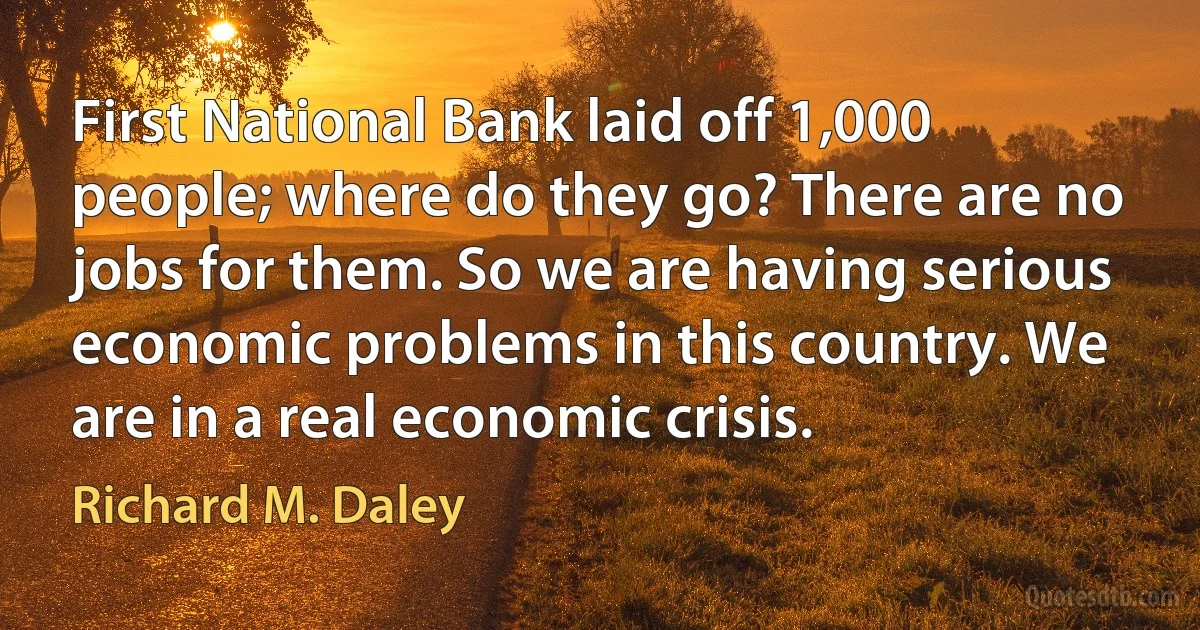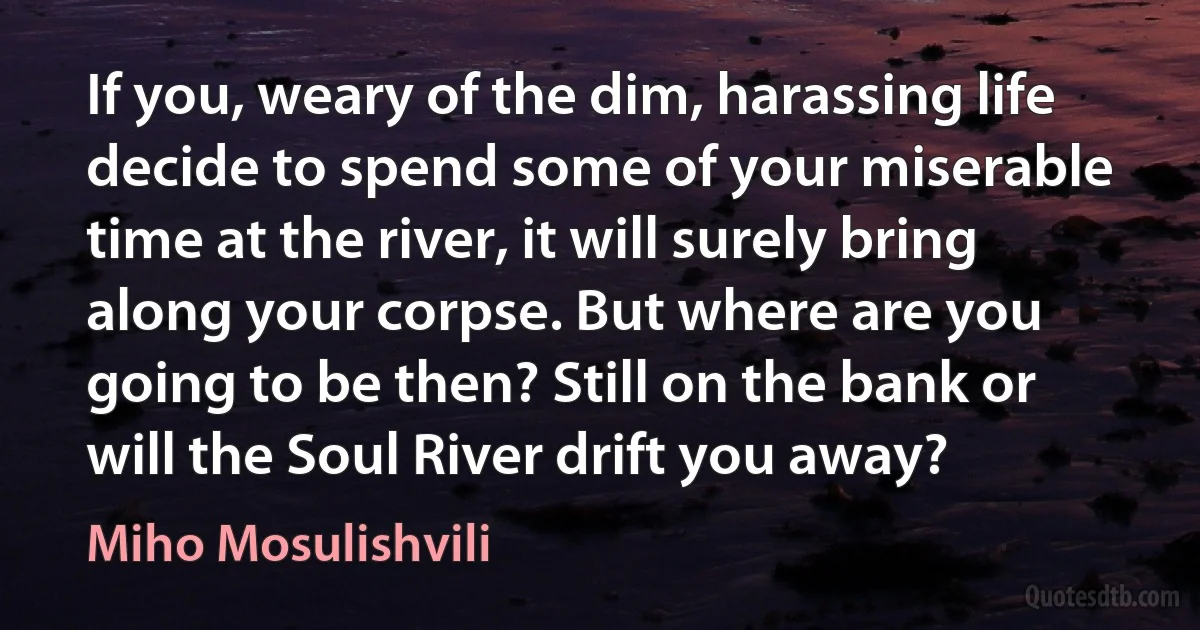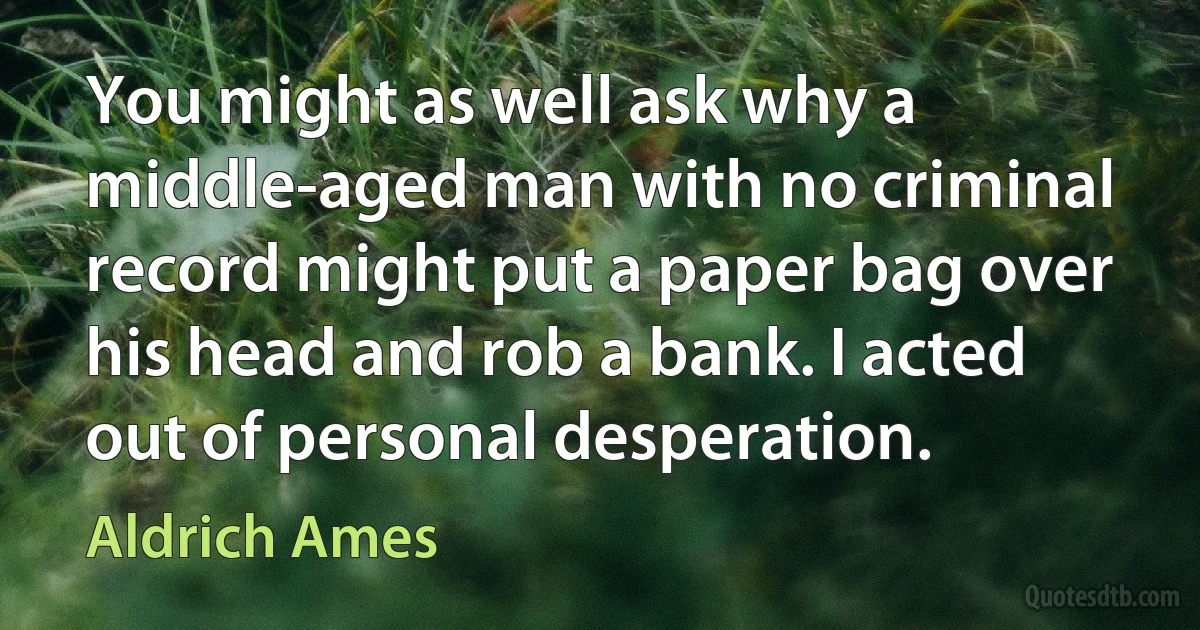Bank Quotes - page 17
A peaceful resolution to the Israeli-Palestinian conflict will likely depend to a great extent on the economic development of a future Palestinian state. As I have argued before, private sector investment - especially in the West Bank - is going to prove crucial in creating the right political and social context for peace.

Edgar Bronfman, Sr.
Even this morning in my speech to the World Bank, I said it was important to undertake a study of the causes and the roots of the conflict in the Central African Republic. There are several factors. There is poverty, exclusion of communities and regions. Those who feel excluded react.

Catherine Samba-Panza
So the fact that I had worked in more than a dozen countries and have been working for 25 years trying to implement health, education and social protection programmes, I think really helped me inside the World Bank Group and helped me to feel a sense of closeness to our frontline staff. But it's a complicated organization... I'm still learning... and the ethnography will continue until I'm done with my work at the World Bank Group.

Jim Yong Kim
You cannot imagine the pleasure you are giving me. This woman and this infant [of an old picture, made in his early years] are my own family. The baby was in its cradle one fine summer day; the mother had fallen asleep beside it. In one hour I did the sketch from nature. It used to hang over my bed, and it cheered my awakening every day for years. Then arrived a morning when we were more in want of necessaries than usual. A dealer came along and offered me a hundred and fifty francs.... he insisted on taking that one in particular. As ill luck would have it, my rent was due next day. I was not in a position to be too particular. He gave me a bank note of one hundred francs, and ten hundred-sous pieces. I made him out a receipt, and he never perceived that he was carrying off a bit of my heart. Ah!, it was hard.

Narcisse Virgilio Díaz
The manifesto had a paragraph on a wish and an aspiration, acknowledging that the Reserve Bank is independent and that there is no intention whatsoever to tamper or tinker with the independence of the central bank. The wish that is expressed is, that as it goes ahead with monetary policy machinations, it will keep an eye on employment.

Cyril Ramaphosa
Born in 1883 and dying in 1946, the bulk of Keynes's professional life was framed by two world wars. At the beginning, he was an Edwardian optimist, convinced that automatic progress was steadily enlarging opportunities for more and more people to live the 'good life', as identified by his mentor, G. E. Moore, and his friends of the Bloomsbury Group. He ended his life bequeathing the world a theory, policies and two international institutions (the International Monetary Fund and the International Bank for Reconstruction and Development) designed to strengthen the foundations of free economy, so as to make it possible again for people to indulge the hopes with which he had grown up. In between, there was catastrophe and retrogression, starting in Europe and spreading to most of the rest of the world.

Robert Skidelsky
Mujahid Shah, on this occasion, repaired mosques which had been built by the officers of Alla-ood-Deen Khiljy. He broke down many temples of the idolaters, and laid waste the country; after which he hastened to Beejanuggur... The King drove them before him, and gained the bank of a piece of water, which alone divided him from the citadel, where in the Ray resided. Near this spot was an eminence, on which stood a temple, covered with plates of gold and silver, set with jewels: it was much venerated by the Hindoos, and called, in the language of the country, Puttuk. The King, considering its destruction a religious obligation ascended the hill, and having razed the edifice, became possessed of the precious metals and jewels therein.

Firishta
The Central Bank should have a permanent window for discounting high quality securities where banks could go and discount these. It gives peace of mind to the banks. In the absence of this facility, what banks tend to do is to keep a liquidity cushion for emergency requirements. This is a very expensive way of managing liquidity.

Abdul Aziz Al Ghurair



